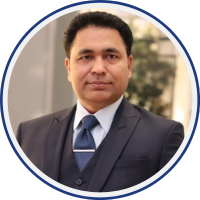Investment questions follow me everywhere – especially from expats living outside their hometowns.
The truth? It’s not a one-size-fits-all answer.
Investing is personal.
Like medicine, it’s not about giving “an antibiotic” and hoping it works.
Each person’s life, risk tolerance, and goals are different.
So the plan must be tailored, not generic.
That’s why my philosophy is simple: learn to invest.
Nobody can build your financial independence for you unless they know everything about you.
If you want a generic framework, read on.
If you want a specific plan, send me a direct message with details.
The more I know about your circumstances, the better I can guide you.
THE 4 QUESTIONS TO ANSWER BEFORE YOU INVEST
- How much money do you have right now?
Your starting capital defines your choices. - How much will you add in the future?
Weekly? Monthly? Quarterly? Yearly? This determines compounding power. - How long can you leave the money untouched?
This is your investment horizon. The longer it is, the more powerful your growth potential. - What is your main goal with this money?
- Do you want safety and liquidity?
- Do you want steady income?
- Do you want long-term wealth building?
Your answers will shape your portfolio more than any “hot tip” ever will.
TWO TYPES OF INVESTORS
I break this down into two broad categories:
- Investors with less than $100,000
- Investors with more than $100,000
Each group has different opportunities and different limitations.
IF YOU HAVE LESS THAN $100,000
Your options are limited, but powerful if you’re disciplined.
→ Keep your money in strong currencies.
If you’re in a country where the local currency is pegged to the USD (like AED, SAR), you’re relatively safe from sudden devaluation.
→ Use money market accounts.
In the UAE, for example, banks offer accounts paying around 4% annually. This helps protect against inflation, which typically runs at 2.5–3%.
→ Invest in gold.
Gold won’t make you rich, but it preserves value across decades. Slowly accumulating physical gold or ETFs can hedge against instability.
→ Build consistent habits.
Even saving 5–10% of your monthly income into these vehicles puts you ahead of most.
IF YOU HAVE MORE THAN $100,000
This opens more doors.
→ Real estate
Buy assets that appreciate in value and generate rental income. If you qualify for financing, real estate is one of the strongest long-term hedges against inflation.
→ Stock market
Diversify across ETFs (like QQQ, S&P 500) rather than chasing individual stocks. Compounding over 10–20 years here can be transformative.
→ Private opportunities
If you’re an accredited investor, you may qualify for private equity, venture capital, or early-stage business deals. But don’t touch these without deep due diligence.
→ Tax-optimized investments
As an expat, explore zones, funds, or instruments in your country of residence that minimize or defer tax. Every percent saved is a percent compounded.
CORE PRINCIPLES FOR ALL INVESTORS
◼ Always beat inflation. If your money isn’t growing faster than 3% annually, it’s shrinking in real terms.
◼ Diversify. Don’t keep everything in cash. Spread across liquid, semi-liquid, and long-term assets.
◼ Liquidity matters. Keep a portion easily accessible for emergencies. Illiquidity can kill you when life surprises you.
◼ Taxes matter. Understand your host country’s rules. The rich aren’t smarter – they just know the rulebook.
◼ Risk is reality. The enemy isn’t risk itself, but not knowing your downside. Protect the downside, let the upside run.
FINAL WORD
Before you make any financial decision must read this essential guidelines.
I’ve shared hundreds of ways to succeed financially.
But no roadmap is universal.
If you want instant, one-size-fits-all answers, investing is not for you.
If you want to build true wealth, you need curiosity, patience, and effort.
Remember: a spark is enough.
Once ignited, you’ll figure out the mechanics, the money, and the path.
Your wealth journey doesn’t need to be perfect.
It just needs to be personal.
Before making any investment move, make sure your foundation is strong:
- 📌 11 Fundamental Money Concepts Everyone Should Master
- 📌 The Foundation of Wealth: Your Safety Net Strategy
- 📌 What is Risk-Adjusted Return (and Why Every Investor Must Understand It)
Without fundamentals, a safety net, and risk awareness, you’re not investing — you’re gambling.
#MunawarAbadullah #WealthWithMunawar #WisdomToWealth #MunawarPlaybook


